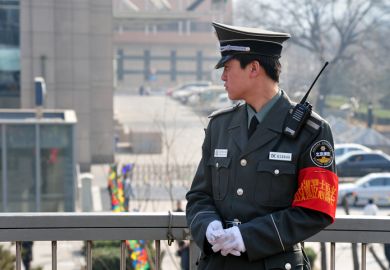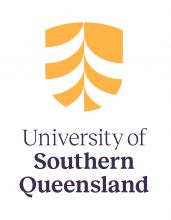Academics in Australia face homegrown dangers, intellectual freedom advocates have stressed, as the country inaugurates the latest national network of Scholars at Risk (SAR).
University of Melbourne constitutional law expert Adrienne Stone said SAR’s role was to support academics experiencing threats to their academic freedom – “and, indeed, to their lives and liberty” – of a kind that Australians rarely confronted.
“But…we should not think that threat to academic freedom is something that happens in the rest of the world only,” Professor Stone told a webinar marking the new network’s launch. “On the contrary, we need to be very attentive to academic freedom in Australia as an element of our democracy. There are reasons to be quite concerned, given the stresses on democratic government at present.”
Professor Stone said universities were “essential infrastructure for democracy”, as institutions with a unique combination of independence and research expertise. This infrastructure was jeopardised in countries where intellectuals were “clearly under threat” like Brazil, Hungary, India, Poland and Afghanistan.
But academic freedom was also at risk “in societies like ours, where the threats are weaker”. Populism – a form of political thought that excluded experts from the idea of the “true people” – was “naturally very hostile to universities and to academics”.
“Combined with threats of a more traditionally neoliberal type, which treat universities like other corporate bodies and govern them without reference to academic values, there is quite a potent force that threatens universities – even in Australia and societies like it,” said Professor Stone.
But the launch was primarily concerned with countries where the threats were starker. SAR executive director Rob Quinn said that while his organisation had originated amid concerns for academics in Algeria, Bosnia, Kenya and Timor, most eyes were now fixed on Afghanistan.
He said SAR’s network of more than 500 institutions in 40 countries was “racing to offer assistance”, with more than 100 members fronting up to host and support threatened scholars, students and activists. While the response had been “extraordinary and heartwarming”, the need was snowballing.
“Trapped” Afghan scholars had issued perhaps 100 cries for help in “previously busy periods”, Mr Quinn said. The volume had now soared to 60 a day and rising.
Amnesty International Australia director Sam Klintworth listed examples of academics under extreme threat elsewhere.
They included Iranian-Swedish doctor Ahmadreza Djalali, sentenced to death by Tehran on espionage charges; Uighur economist Ilham Tohti, jailed for life by Beijing for advocating separatism; Emirati economist Nasser Bin Ghaith, imprisoned for 10 years for tweets criticising the UAE’s human rights record; and anthropology student Ahmed Samir Santawy, serving four years over his research into Egyptian women’s reproductive rights.
Sophie McNeill, a researcher with Human Rights Watch, focused on threats to Chinese students in Australia: “Whilst we’ve heard a lot about what’s going on around the world, sometimes it’s more shocking to realise what is happening here at home.”
SAR says national networks build capacity for collective action by institutions within individual countries, allowing members to engage more closely with each other and with the organisation’s broader global efforts.
The US, Canada and 12 European countries already have their own national networks. The Australian chapter, to be hosted by the University of the Sunshine Coast for its first two years, includes 17 universities and the National Tertiary Education Union.
Register to continue
Why register?
- Registration is free and only takes a moment
- Once registered, you can read 3 articles a month
- Sign up for our newsletter
Subscribe
Or subscribe for unlimited access to:
- Unlimited access to news, views, insights & reviews
- Digital editions
- Digital access to THE’s university and college rankings analysis
Already registered or a current subscriber? Login












